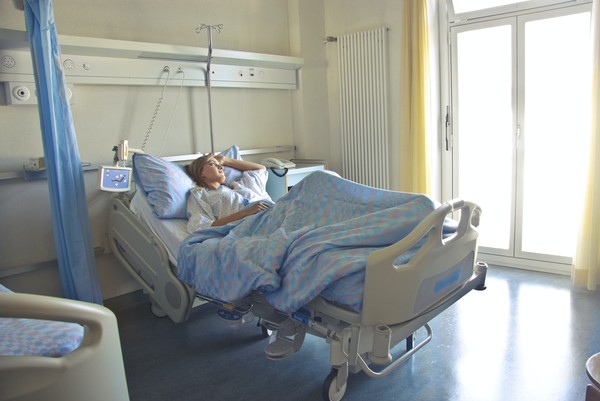
The main issue of revision related to physician-assisted suicide (PAS), which was proposed by Representative Ahn GyuBack (or Rep. Ahn) of the Democratic Party of Korea, is to adopt the Act in order to allow the end of life of terminal patients suffering from unbearable pain. Patients then get a chance to die on their own will, getting help from doctors who prescribe life-ending medication or subsequent medical aid. Since it changes the social recognitional of medical acts contrasted with the criminal act of murder, Koreans should consider the negative circumstances that would happen when allowing physician-assisted suicide. When it is legally allowed, incidents abusing the act may happen and the suicidal rate will increase. Also, it will justify taking privacy right of patients, and it is not relevant to the ethics of respecting humans’ noble life. For these reasons, the government should not legally permit physician-assisted suicide.
As a method of suicide, physician-assisted suicide could be abused. In effect, countries allowing the PAS have recorded an increasing suicide rate. The Netherlands, which legalized PAD in 2001, reported the number of euthanasia and PAS raised about 4703 more people in 2017 compared to the first year. Likewise, in Switzerland the number of deaths by PAS has increased 5 times by 2015, compared to 2003. Meanwhile, Korea has already recorded the highest suicide rate among OECD countries even though the Korean government does not consent to PAS legally. Also, the number of Koreans subscribing to nonprofit organizations in which provide the PAS services of Switzerland exceeded 100 in 2021. Since the number of Korean subscribers are increasing by about 30 people each year consistently, if PAS is allowed legally, it proves that the suicide rate will get higher out of control. According to the Korean Medical Association News (KMA Times), Professor Kim Hyun-Seop from Seoul National University, department of philosophy said in a discussion of PAD in August of 2022, that currently in many states in the US, suicide has been expanded by approximately 18 percent, especially among females over the age of 64. He also concerned about the negative effects that national permission of PAS would have for the country, mentioning not only the PAS has increased, but non-PAS has also been high. Besides, several civic groups including Declaration on Respect for Life have disputed the legislation of PAS since it could build the atmosphere of devaluing life. In this way, lots of specialists are worried about the confusion Korea would meet after PAS is approved.
Moreover, it is hard to conclude that the ‘choice,’ which is from the various environmental force of terminally ill patients, is made for ending their life ‘on their own.’ For instance, a family that cannot afford to pay for the ill patients due to their poor backgrounds receive the inevitable alternative from society: physician-assisted suicide. As Rep. Ahn revised the Act, he showed the new condition that the applicants should choose PAS in his or her will is actually the “recommendation to suicide.” In depth, the revised reformation includes the new addition that the patients “take the medication on his or her own will” to lets themselves die. PAS is extended from the current version of euthanasia, to where the terminally ill, who have the possibility to recover could “insert the medical substance on their own” for the purpose of guaranteeing the self-decision right. However, the added provision will allow the tendency of suicide-promoting based on financial background. The Korean Society for Hospice and Palliative Care (KSHPC) said that the gist of the bill is to rarefy the term suicide to “Death with Dignity” and it allows the terminally ill to end their own lives with the help of physician. Also, they criticized the National Assembly for being indifferent of supporting and monitoring the government’s efforts in policy which is responsible for hospice care and infrastructure expansion after the declaration of Act on Decisions on Life-Sustaining Treatment for patients in hospice care. Likewise, they talked about the trend of encouraging patients to decide on suicide and not reforming other field’s systems. The medical field has been stating powerful opposite view of national approval of PAS, mentioning it would stir up the mood of dying in the society.
Lastly, PAS is currently deemed to be unethical, and it is inappropriate with the social sentiment in Korea. Under the current law, a doctor who aids another to commit a suicide, the Murder upon Request or with Consent (Article 252) applies and the PAS is considered illegal. However, when PAS is allowed, the additional article says that a physician who assists the suicide will not be applicable to the Criminal Act. If so, the ambiguous gap between the concept of murder and suicide will confuse the doctors, and medical chaos seems to be inevitable. Furthermore, even if it is allowed legally, it cannot help avoiding the conflict with religions and other theoretical areas. Several civic groups including the Declaration on Respect for Life said “PAS should reflect the trials and errors, the experience that Switzerland and the US had been through wholly and it should be made based on philosophy and introspection such as social matureness and cultural backgrounds.” They also pointed out the cultural differences between Korea and other countries by saying that neglecting the world’s 4th highest suicide rate could be seen as tolerating the act of neglecting the dignity of life. In addition, Lee Seok-Bae (Lee), a professor of the Dankook University School of Law, said that the survey poll that Rep. Ahn reported resulting that the majority of people were consent to PAS is objectively out of reliability. The survey about the attitude to PAS or euthanasia was hosted by Young Ho Yun, a professor of Seoul National University College of Medicine, targeting a thousand Korean adults (over 19 years) from March to April, 2021. The result was that over 80% of the respondents agreed to the question. Mentioning the survey, Lee said “When conducting a survey and they ask you if agreeing to euthanasia, the result must be over 70~80% affirmative. There is no one to be against the dignity of death. However, if they ask you in specific, such as “your parents or son,” there likely be a much lower rate of agreement. The public poll result could change a lot when you just change a single word.” He stood a chance of not believing the well-known survey when it especially comes to euthanasia. Likewise, PAS, which is not in sync with the national laws and moral views, is hard to be seen as the best solution in Korea where people see the physician-assisted suicide as immoral.
‘The right to die’ is not included in the ‘right to privacy.’ The Korean government should think about the dignity to life more crucially, and circumspectly. However, physician-assisted suicide does not but instead makes people overlook the nobility of one’s life. Thus, the government should not allow physician-assisted suicide in that it attributes to increasing suicide rates in Korea and it encourages the atmosphere of ‘dying’ in a way not appropriate with the country’s sentiments. Moreover, rather than giving patients more opportunity to die with dignity, the Korean government should construct infrastructure related to medical services and treatment of mental disorders such as depression.

Since Democratic Party representative Ahn GyuBack proposed the revision to the Act on Decisions on Life-Sustaining Treatment for patients in hospice care, or the “Death with Dignity Act,” controversy about whether Korea should legally admit physician-assisted suicide has been a high-profile issue in Korea. There has been lots of debates based on the revision Act and the discussion which Rep. Ahn hosted. CAH also intensively argued the controversy with respectively logic and a legal basis. The affirmative side had a position suggesting that the government admit the patient’s choice of his own peaceful death. On the other hand, the negative side built their opinion on the fact of Korean suicide ranking the 4th in the world and there should not be a possible justification to enhance the suicidal rate. How about you? We wonder what CAH readers think about physician-assisted suicide.

